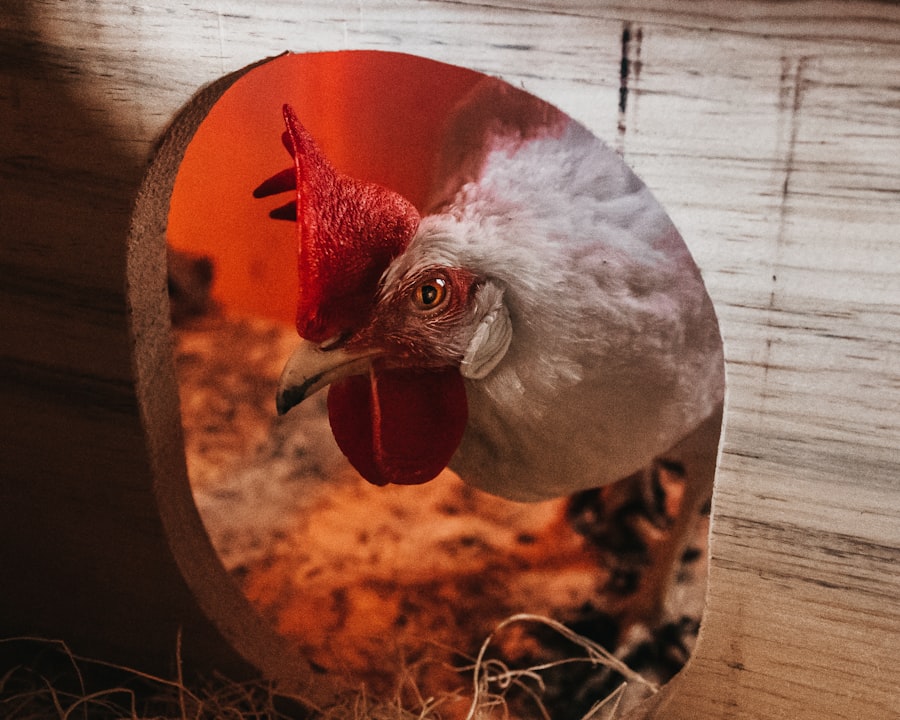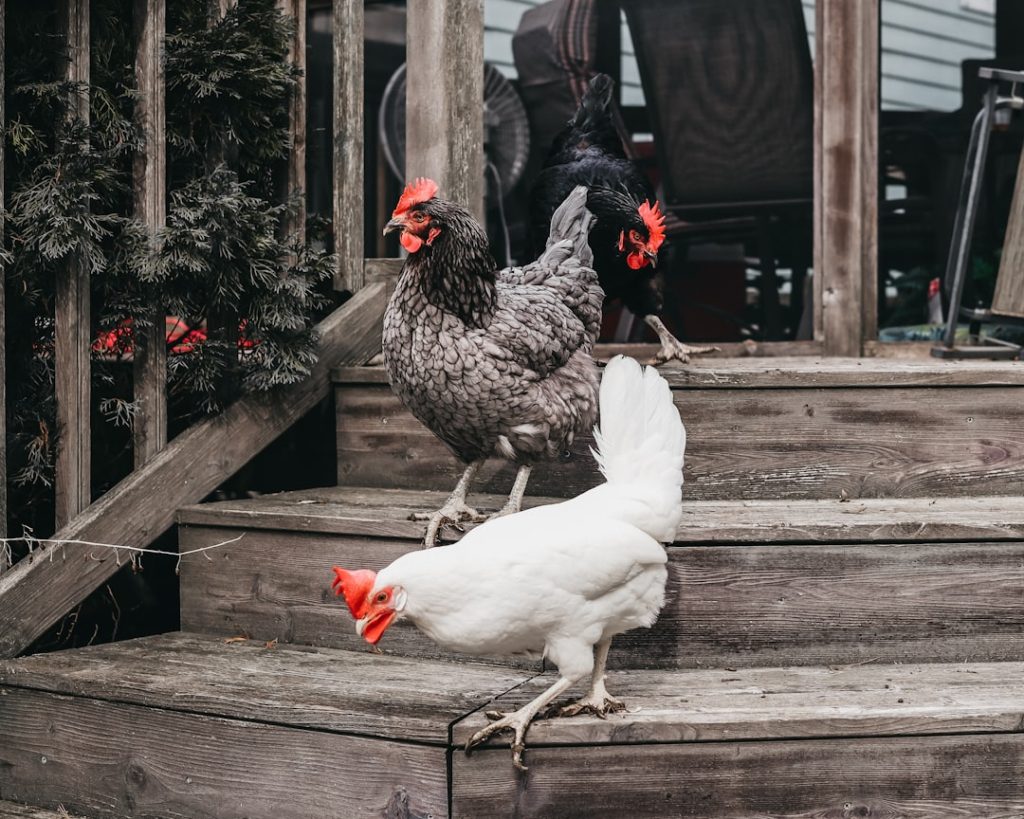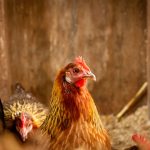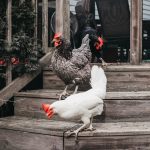When it comes to housing and space requirements for raising poultry, providing a suitable environment is crucial for the birds’ health and well-being. Poultry housing should protect birds from predators, adverse weather, and disease. The size of the housing facility depends on the number of birds, but adequate space is essential to prevent overcrowding, which can lead to stress, aggression, and increased disease risk.
Proper ventilation is necessary for good air quality and respiratory health. The housing should be easy to clean and disinfect to minimize disease outbreaks. Space requirements typically include 2-3 square feet per bird in the housing facility, allowing for free movement and natural behaviors like scratching and dust bathing.
Outdoor access is important for roaming and foraging, promoting physical exercise and natural behaviors, which contribute to improved welfare. Feeding and nutrition are critical aspects of poultry management, directly impacting health, growth, and productivity. A well-balanced diet should include protein, carbohydrates, fats, vitamins, and minerals to support growth, egg production, and overall health.
Clean, fresh water should be available at all times for digestion, temperature regulation, and general well-being. The feeding method and schedule are important considerations. Providing continuous access to feed allows birds to eat at their own pace and promotes natural feeding behaviors.
Monitoring feed consumption and adjusting the feeding program as needed prevents overeating or underfeeding. Feed additives such as probiotics or prebiotics can support gut health and improve overall performance. Working with a qualified nutritionist to develop a feeding program that meets the specific needs of the birds is recommended for optimal health and productivity in poultry management.
Table of Contents
- 1 Health and Disease Management
- 2 Brooding and Temperature Control
- 3 Handling and Welfare
- 4 Slaughter and Processing
- 5 Marketing and Sales
- 6 FAQs
- 6.1 What are broiler chickens?
- 6.2 How do you keep broiler chickens?
- 6.3 What do broiler chickens eat?
- 6.4 What are some common health issues for broiler chickens?
- 6.5 How long does it take to raise broiler chickens for meat production?
- 6.6 What are some key considerations for keeping broiler chickens?
Key Takeaways
- Proper housing and space requirements are essential for the well-being of poultry, including adequate ventilation and protection from predators.
- Feeding and nutrition play a crucial role in the growth and development of poultry, with a balanced diet being key to their health and productivity.
- Regular health checks and disease management are important to prevent and control illnesses in poultry flocks.
- Brooding and temperature control are critical during the early stages of poultry rearing to ensure optimal growth and survival rates.
- Proper handling and welfare practices are necessary to minimize stress and ensure the overall well-being of poultry.
Health and Disease Management
Preventing Disease Outbreaks
Good biosecurity practices, such as controlling access to the farm, proper sanitation, and disease monitoring, are essential for preventing the introduction and spread of diseases. Additionally, vaccination programs can help protect poultry from common diseases and reduce the risk of outbreaks.
Effective Disease Management
Regular health monitoring and early detection of any signs of illness are crucial for effective disease management. It is important to work with a veterinarian to develop a health management plan that includes regular check-ups, diagnostic testing, and appropriate treatment protocols.
Supporting Overall Health and Immune Function
In addition to disease management, it is important to consider other aspects of poultry health, such as parasite control and maintaining good hygiene practices. Providing a clean environment, proper nutrition, and access to clean water are also essential for supporting overall health and immune function in poultry.
Overall, effective health and disease management are essential for maintaining the well-being of poultry and ensuring the success of a poultry operation.
Brooding and Temperature Control

Brooding is a critical stage in the life cycle of poultry that requires careful attention to temperature control and environmental conditions. During the first few weeks of life, chicks require a warm and draft-free environment to support their growth and development. Providing a suitable brooding area with access to heat sources such as heat lamps or brooders is essential for maintaining optimal temperature conditions.
It is important to monitor temperature levels regularly and make adjustments as needed to ensure that the chicks are comfortable. In addition to temperature control, it is important to consider other aspects of brooding management, such as providing access to clean water, suitable bedding material, and proper ventilation. Maintaining good air quality is essential for preventing respiratory issues and promoting overall health in young chicks.
It is also important to provide enough space for the chicks to move around comfortably and engage in natural behaviors. Overall, effective brooding management requires careful attention to temperature control, environmental conditions, and overall welfare of the chicks. Providing a suitable brooding area with access to heat sources, clean water, proper ventilation, and adequate space is essential for supporting the growth and development of young poultry.
Handling and Welfare
Proper handling and welfare practices are essential for promoting the well-being of poultry throughout their life cycle. When handling poultry, it is important to use gentle techniques that minimize stress and avoid causing injury to the birds. This includes using appropriate handling equipment, such as crates or containers designed for transporting poultry, as well as avoiding rough handling or excessive force.
In addition to handling practices, it is important to consider other aspects of welfare management, such as providing suitable housing conditions, access to clean water and balanced nutrition, and opportunities for natural behaviors. Enrichment activities such as providing perches or dust bathing areas can help promote natural behaviors and improve welfare in poultry. It is also important to monitor the birds regularly for signs of stress or illness and take appropriate action as needed.
Overall, promoting good welfare practices in poultry management involves providing a suitable environment that supports the physical and behavioral needs of the birds while minimizing stress and promoting overall well-being.
Slaughter and Processing
Slaughter and processing are critical stages in the production of poultry products that require careful attention to ensure food safety and animal welfare. It is important to follow proper handling techniques during transportation from the farm to the processing facility to minimize stress on the birds. At the processing facility, it is essential to use humane slaughter methods that minimize pain and distress for the birds.
In addition to animal welfare considerations, it is important to follow strict food safety protocols during processing to ensure that poultry products are safe for consumption. This includes maintaining clean facilities, proper sanitation practices, and following strict guidelines for handling and packaging poultry products. Overall, effective slaughter and processing practices require careful attention to animal welfare considerations as well as strict adherence to food safety protocols to ensure high-quality poultry products that are safe for consumption.
Marketing and Sales

Identifying Target Markets and Branding Strategies
A well-planned marketing strategy involves identifying target markets, developing branding strategies, and utilizing various marketing channels such as social media, farmers’ markets, or direct sales.
Sales Management and Customer Service
In addition to marketing strategies, it is essential to consider other aspects of sales management, including pricing strategies, distribution channels, and customer service. Providing high-quality products that meet consumer demand while maintaining good customer relationships is vital for building a successful poultry business.
Comprehensive Marketing Plan
A comprehensive marketing plan should effectively promote products while maintaining high standards of customer service and product quality. By doing so, poultry businesses can build a strong reputation and establish a loyal customer base.
If you’re interested in learning more about the breeding habits of different poultry, you might want to check out this article on how many eggs geese lay. Understanding the reproductive patterns of geese can provide valuable insights for anyone looking to expand their knowledge of poultry breeding.
FAQs
What are broiler chickens?
Broiler chickens are a type of chicken that are specifically bred and raised for meat production. They are typically raised for a short period of time, usually around 6-8 weeks, before being processed for their meat.
How do you keep broiler chickens?
Broiler chickens should be kept in a clean and well-ventilated environment with access to fresh water and high-quality feed. They require adequate space to move around and should be protected from predators and extreme weather conditions.
What do broiler chickens eat?
Broiler chickens are typically fed a diet that consists of high-protein feed to support their rapid growth. This feed may include grains, soybean meal, and other supplements to ensure they receive the necessary nutrients for healthy development.
What are some common health issues for broiler chickens?
Common health issues for broiler chickens include respiratory problems, leg disorders, and heart-related issues due to their rapid growth rate. Proper management of their environment, diet, and overall care can help prevent these health issues.
How long does it take to raise broiler chickens for meat production?
Broiler chickens are typically raised for meat production for a period of 6-8 weeks before they are processed. This short timeframe is due to their rapid growth rate and the specific breeding for meat production.
What are some key considerations for keeping broiler chickens?
Key considerations for keeping broiler chickens include providing a suitable environment, ensuring proper nutrition, managing their health and welfare, and following best practices for meat production. It is important to adhere to regulations and guidelines for raising broiler chickens.
Meet Walter, the feathered-friend fanatic of Florida! Nestled in the sunshine state, Walter struts through life with his feathered companions, clucking his way to happiness. With a coop that’s fancier than a five-star hotel, he’s the Don Juan of the chicken world. When he’s not teaching his hens to do the cha-cha, you’ll find him in a heated debate with his prized rooster, Sir Clucks-a-Lot. Walter’s poultry passion is no yolk; he’s the sunny-side-up guy you never knew you needed in your flock of friends!







